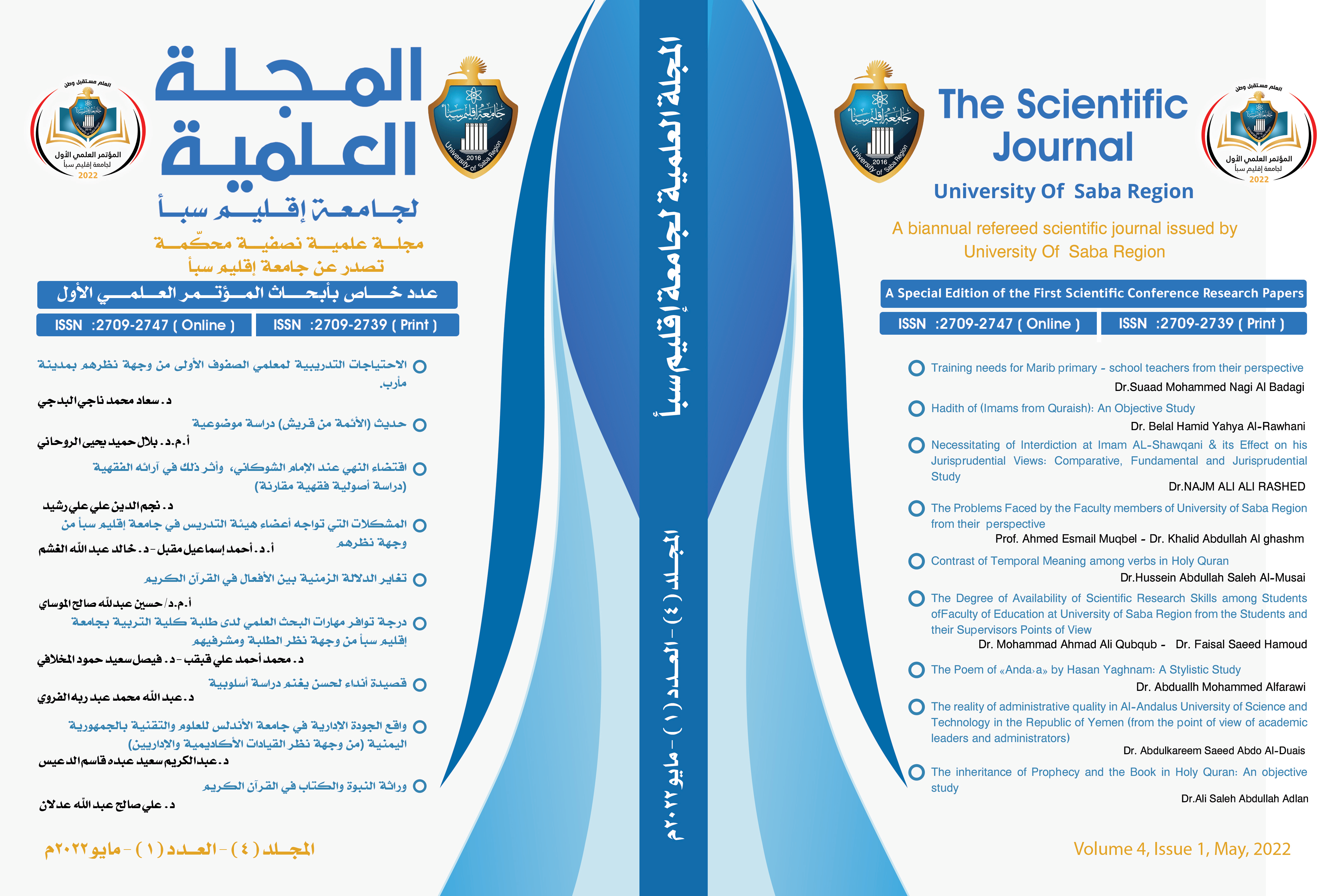Necessitating of Interdiction at Imam AL-Shawqani & its Effect on his Jurisprudential Views: Comparative, Fundamental and Jurisprudential Study
DOI:
https://doi.org/10.54582/TSJ.2.2.29Keywords:
Al -Shawqani, Necessitating, ForbiddingAbstract
The research dealt with the necessity of interdiction and its requirement according to Imam Al-Shawkani and its impact on his jurisprudential opinions by applying them to some jurisprudential issues, because the scholars of Principles differed in the connotation of interdiction against abominable and its requirements, including Imam Al-Shawkani, who had a significant impact on their differences in the practical legal rulings. This research aims to identify the necessity of interdiction and its requirement according to Imam Al-Shawkani, and to determine its impact on his jurisprudential views.
The researcher used the descriptive, analytical, comparative and applied approach. The research was divided into three sections; the first section was about the reason for the interdiction, while the second section was about the requirement of interdiction (the effect of the indication of interdiction) while the third section was about the jurisprudential applications of the effects of interdiction.
The research concluded that:
1-Imam Al-Shawkani believes that the reason for interdiction is inhibition, and it is a fact in it.
2-Imam Al-Shawkani is with the necessity of interdiction if it is important whether in worship or dealings.
3-Imam Al-Shawkani believes that interdiction does not require corruption if there is no specific interdiction, whether in worships or dealings.
4- Agreeing with the jurisprudential opinions of Imam Al-Shawkani with his fundamentalist views on interdiction and the necessity of the inhibition.
Downloads
Published
How to Cite
Issue
Section
License
Copyright and Licensing
This journal publishes all scientific materials under the Creative Commons Attribution 4.0 International (CC BY 4.0) , license, which grants you the following permissions:
You are free to:
- Share — copy and redistribute the material in any medium or format for any purpose, even commercially.
- Adapt — remix, transform, and build upon the material for any purpose, even commercially.
- The licensor cannot revoke these freedoms as long as you follow the license terms.
Under the following terms:
- Attribution — You must give appropriate credit , provide a link to the license, and indicate if changes were made . You may do so in any reasonable manner, but not in any way that suggests the licensor endorses you or your use.
- No additional restrictions — You may not apply legal terms or technological measures that legally restrict others from doing anything the license permits.
Notices:
You do not have to comply with the license for elements of the material in the public domain or where your use is permitted by an applicable exception or limitation .
No warranties are given. The license may not give you all of the permissions necessary for your intended use. For example, other rights such as publicity, privacy, or moral rights may limit how you use the material.













